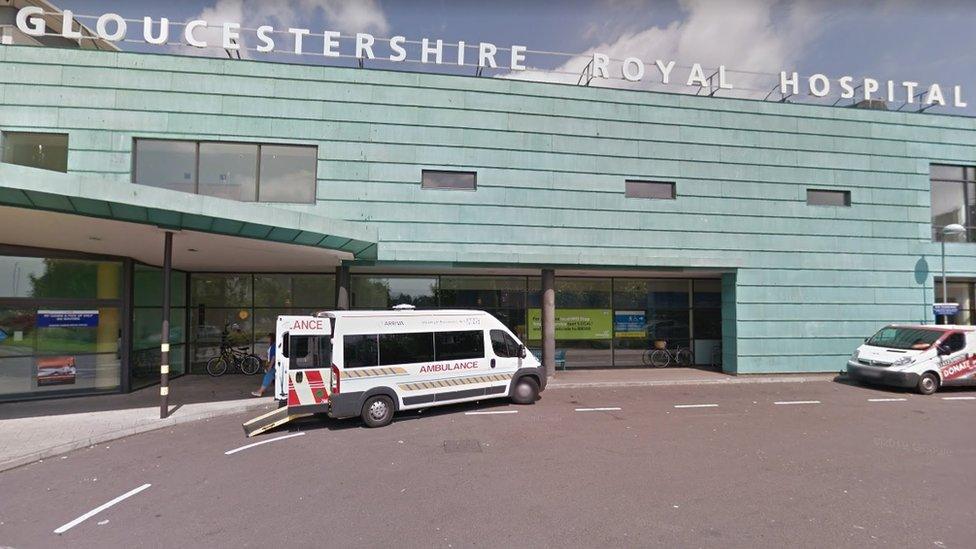Mother died after treatment delays at Gloucestershire Royal Hospital
- Published
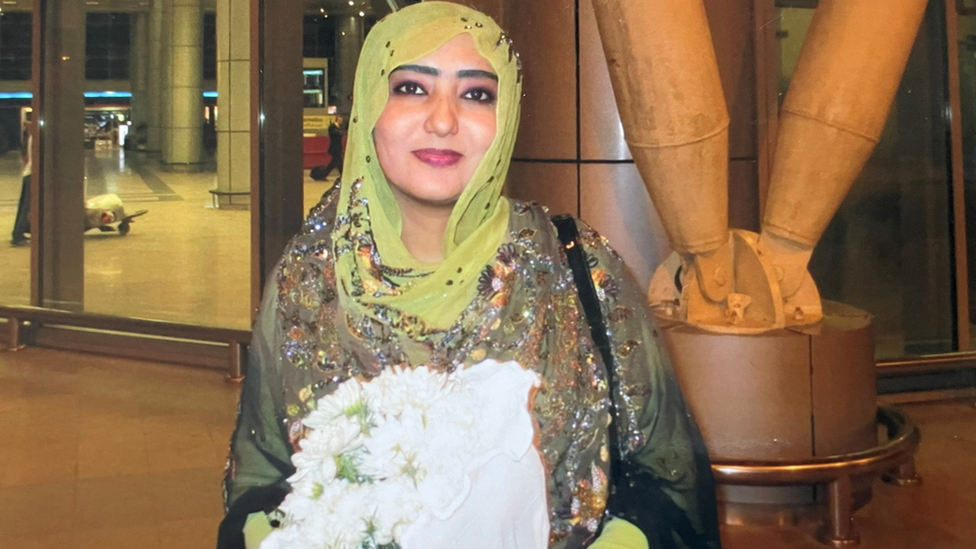
Rana Abdelkarim died after suffering a bleed post-birth at Gloucestershire Royal Hospital
A woman bled to death after it took the medical team looking after her 38 minutes to call for specialist help, an inquest has heard.
Rana Abdelkarim died at Gloucestershire Royal Hospital in March 2021 following a bleed after giving birth.
The inquest found there were "delays" in how her bleed was managed.
Gloucestershire Royal Hospitals NHS Foundation Trust apologised and said changes had been made to prevent further tragedies.
The inquest at Gloucestershire Coroners Court heard how Ms Abdelkarim, 38, was admitted to hospital two years ago to be induced at 39 weeks pregnant.
Her husband Modar Mohammednour, 44, did not go to hospital with her as he was at home looking after their other daughter.
He explained previously that the family did not understand Ms Abdelkarim was being induced but merely thought it was a check-up.
Witness statements submitted to the court said there were language barriers with Ms Abdelkarim, who left Sudan with her husband and made her home in Gloucestershire.
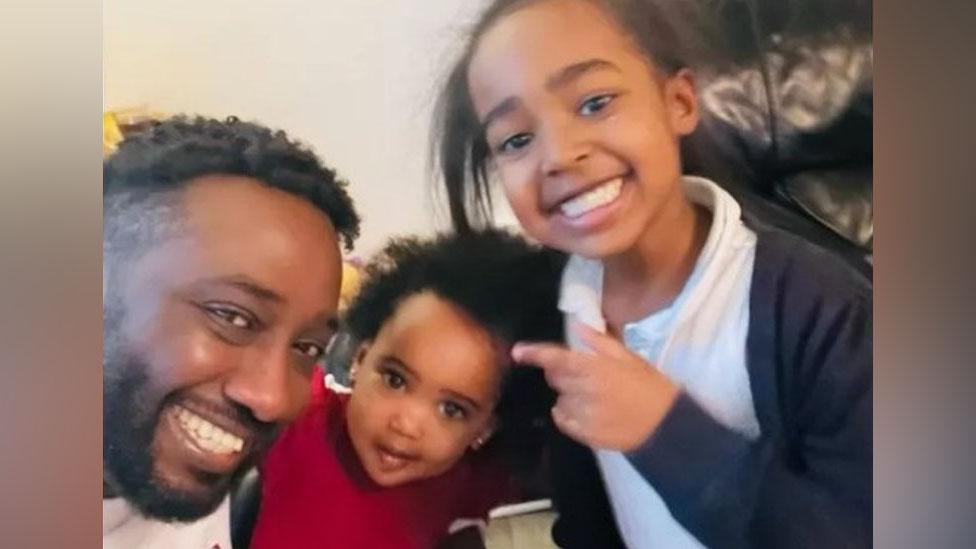
Modar Mohammednour said his eldest daughter Reem asked about her mum all the time
Staff said her English was "poor" but some felt they could "communicate effectively using simple words and hand gesticulations".
A Healthcare Safety Investigation Branch (HSIB) report into the death said: "There was no effective communication with Rana and the events that occurred traumatised staff."
Soon after giving birth to her daughter, Ms Abdelkarim started to experience a major bleed.
Senior coroner Kay Skerrett noted in her conclusion that, after the bleeding started, care "was not at this time escalated to the obstetric team" despite there being "immediate, heavy vaginal bleeding".
"The emergency call bell system was not used to call for help from the obstetric emergency team," the coroner said.
The coroner also noted there were "differences of understanding amongst staff of the code red process".
It was some 38 minutes later that the code red emergency call for a major bleed was made at 05:06 GMT.
Soon after, consultants started battling to save Ms Abdelkarim's life by inserting a uterine tamponade balloon - a balloon inflated inside the uterus to stop bleeding - and they performed a hysterectomy.
The court heard how the HSIB report found staff underestimated how much relative blood volume she was losing because she was small and thin, which contributed to the delay in calling for emergency help.
Despite extensive resuscitation efforts, her condition continued to worsen and she was pronounced dead two hours later.

Rana Abdelkarim leaves behind two daughters
Professor Mark Pietroni, medical director and deputy chief executive at Gloucestershire Royal Hospital NHS Foundation Trust said in a statement addressing the inquest: "We want to take this opportunity to apologise once again for the immeasurable distress that this loss has caused."
He added the death was "thoroughly investigated" through the HSIB report and the trust did a further investigation.
"The findings of these investigations have been shared with Rana's family and HM Coroner and we have implemented all 10 recommendations made in the HSIB report," he said.
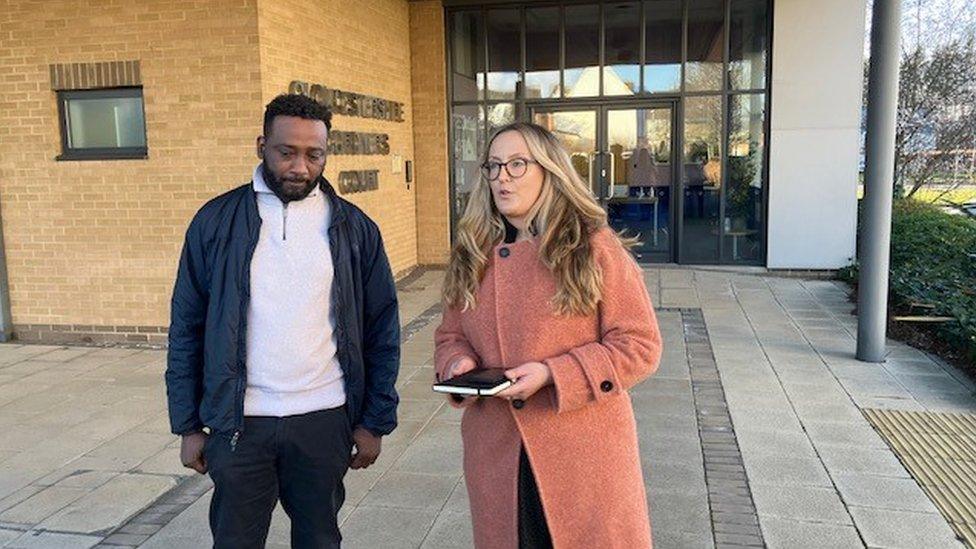
Modar Mohammednour and the family's solicitor, Hannah Carr, outside court
Dr Christine Edwards, consultant obstetrician and gynaecologist, gave evidence about what steps the hospital had taken.
They included the trust updating their interpreter policy and installing a hands-free phone in each antenatal unit, so patients, doctors and a interpreter can be on the same call.
A video has also been made explaining what a code red is and what happens when it is called, which is being shown to staff on mandatory training days.
Dr Edwards also said that, during training days, staff are reminded to evaluate the relative blood loss to a patient's weight, and a specialist drugs trolley for major bleeds after childbirth is on the delivery ward.
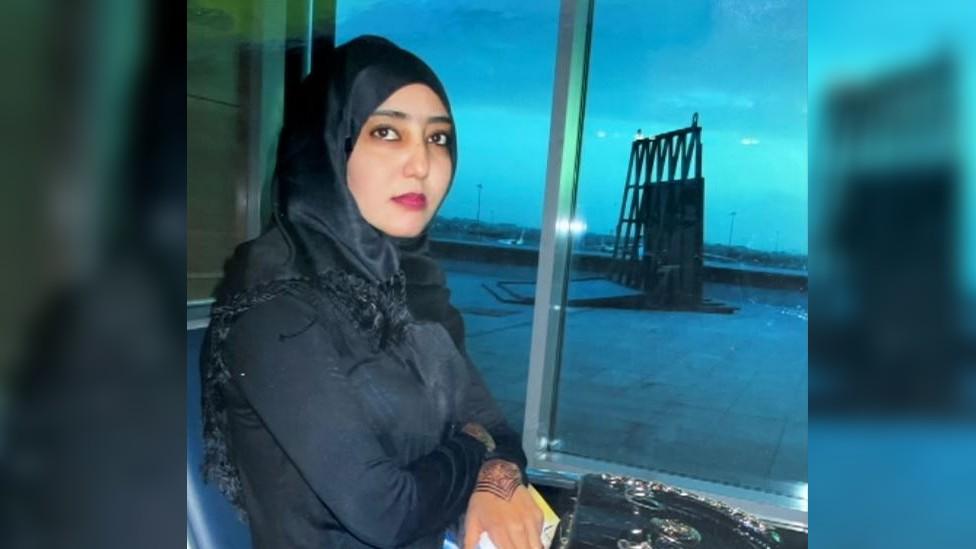
Rana Abdelkarim had moved from Sudan to Gloucestershire
Dr Edwards said a survey with staff was done in April 2022 on how comfortable they felt calling a code red, and one commented there was a "fear" and "shame" in pulling the bell, in case it was not needed.
The consultant said the "culture of leadership on the delivery suite has been looked at quite intensely" since then, and changes had been put in place.
Ms Skerrett said: "I've been taken through all the steps taken by the Trust since this tragic death and, with Dr Edwards' evidence in court, I'm incredibly reassured by a lot of the steps taken."
She added that a report to prevent future deaths will be looked at once the hospital has completed a new survey, to see if the changes are working.
'Sense of justice'
The family's solicitor Hannah Carr, from Novum Law, gave a statement after the inquest.
She said: "I cannot begin to imagine how terrified Rana would have felt, without access to interpretation services and without access to her husband by her side.
"For Modar, while the trust has taken steps to learn from Rana's tragic death, this does not change things for him and his family.
"That said there is a sense of justice for him, as he has always said he wanted to prevent this from happening to other families."

Follow BBC West on Facebook, external, Twitter, external and Instagram, external. Send your story ideas to: bristol@bbc.co.uk , external
Related topics
- Published7 February 2023

- Published13 December 2022
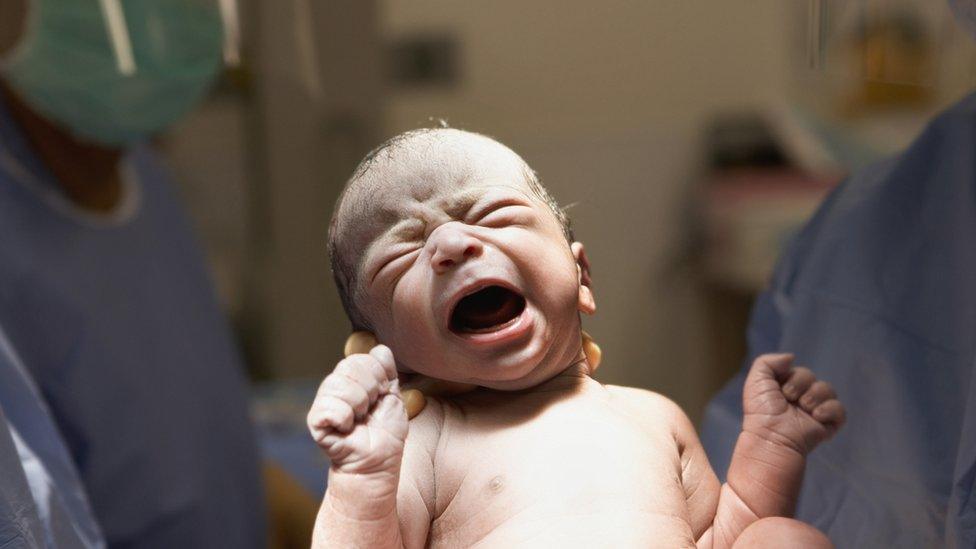
- Published20 November 2022
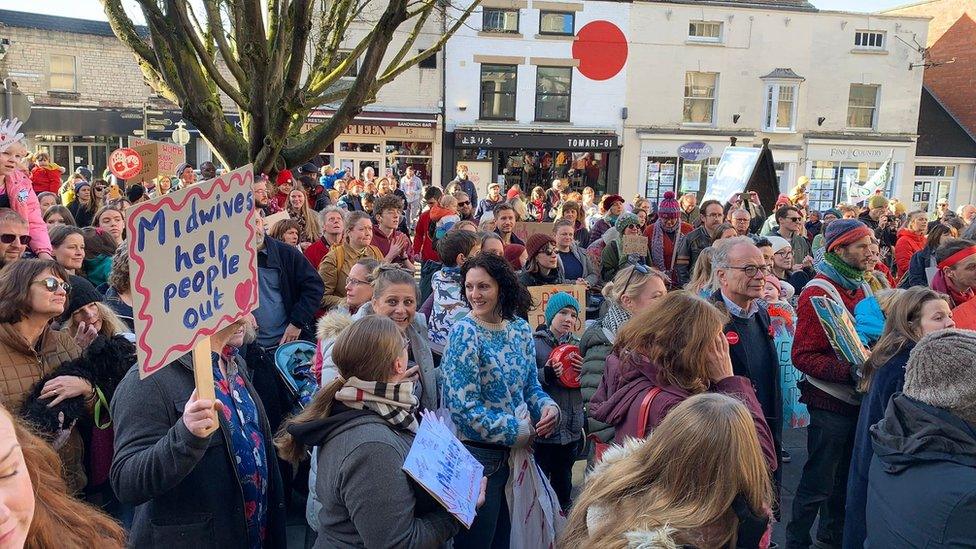
- Published14 October 2022
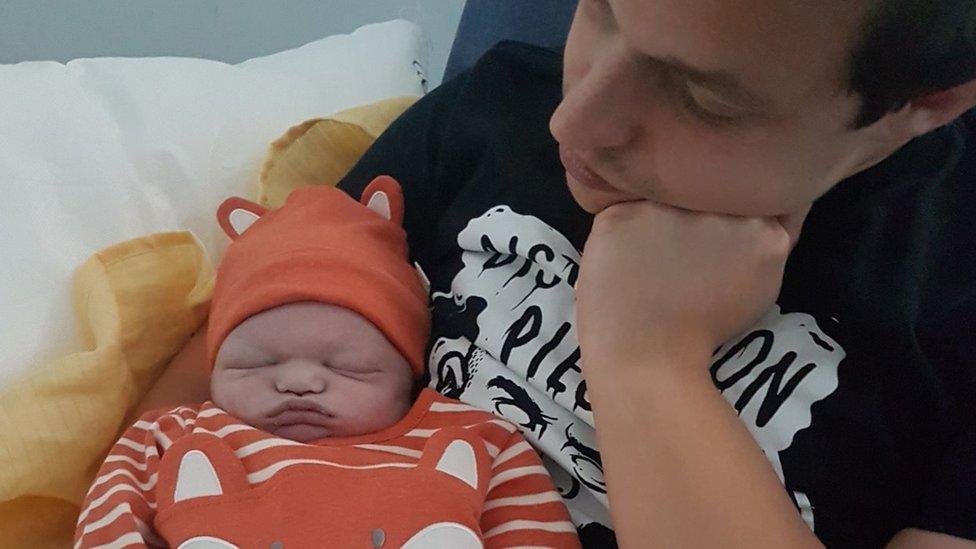
- Published13 October 2022
